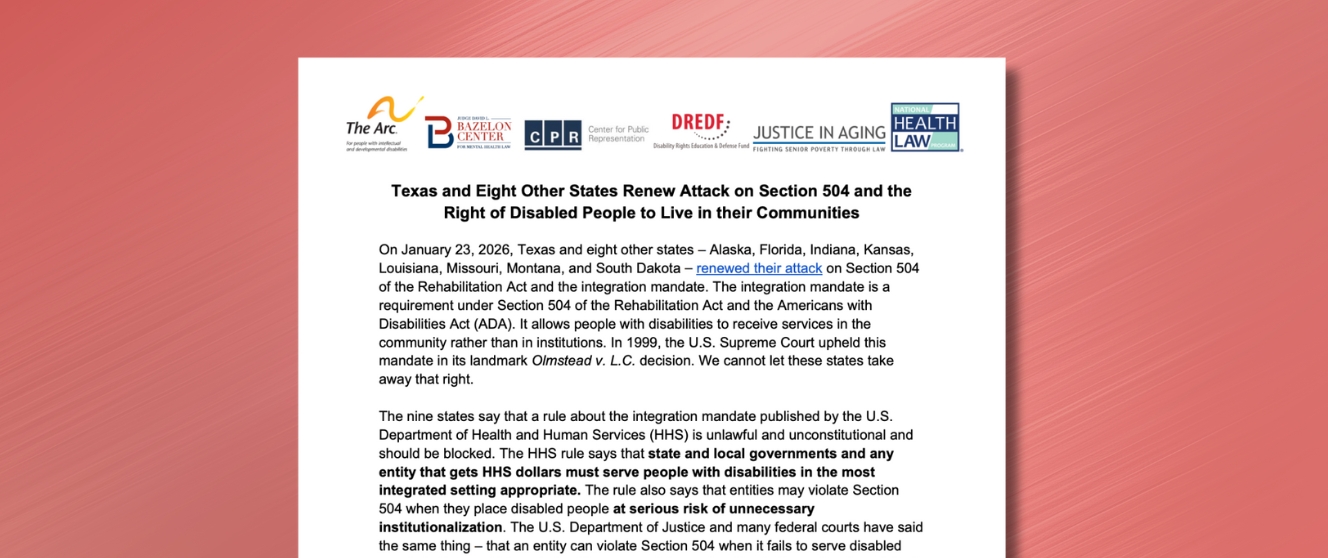
The Centers for Medicare and Medicaid Services (CMS) issues an annual update to the rules that regulate health insurers on federal or state exchanges. This year’s proposed rule has a number of important changes such as:
- reinstating the requirement that health exchanges, insurers, agents and brokers can’t discriminate on the basis of sexual orientation or gender identity;
- clarifying and strengthening the Affordable Care Act’s meaning of discrimination in benefit design;
- adding greater detail to what a plan must do to establish a provider network that gives access to all essential health benefits;
- limiting the spending that plans are allowed to make on “quality improvements,” with income that does not count as plan profits, to spending on direct expenses for improved quality or clinical improvements for patients.
DREDF and our colleagues at the Bazelon Center for Mental Health Law commented on all these aspects of the proposed rule. Non-discriminatory benefit design in healthcare is especially important for people with disabilities, including those with mental health disabilities, who have experienced both obvious and subtle discrimination in insurance for decades such as visit limits, “special” co-pays, and outright failure to cover services and items that are medically necessary for mostlyi people with disabilities. In our comments, we recommend that plan spending on improving health equity for people with disabilities, such as by helping providers to get accessible examination equipment, could and should be considered a quality improvement that doesn’t count toward an insurer’s profits. We also pointed out how telehealth has been inaccessible for people who are Deaf or who have other communications disabilities. Finally, we pushed for better demographic data collection on disability in healthcare overall.

